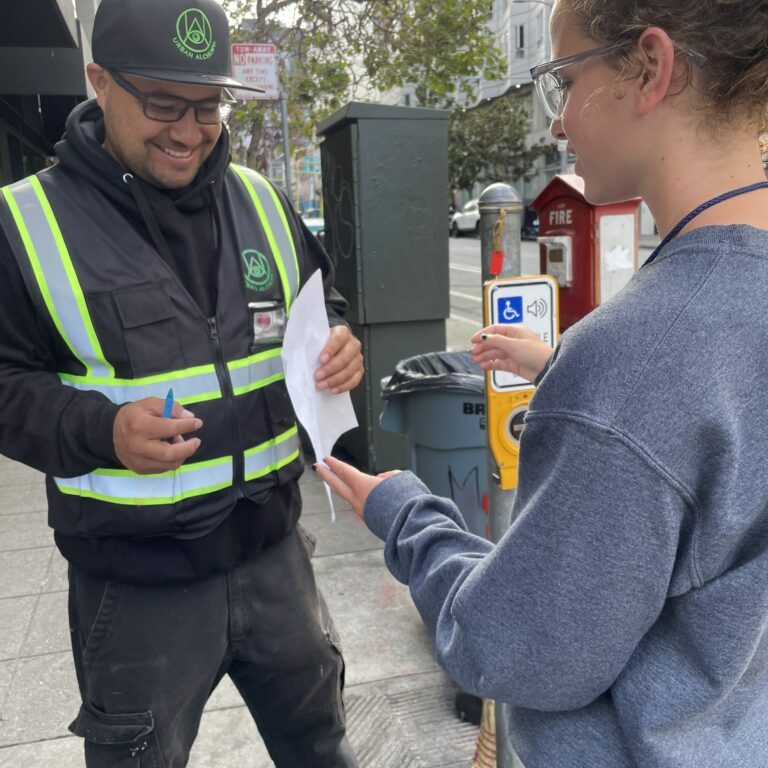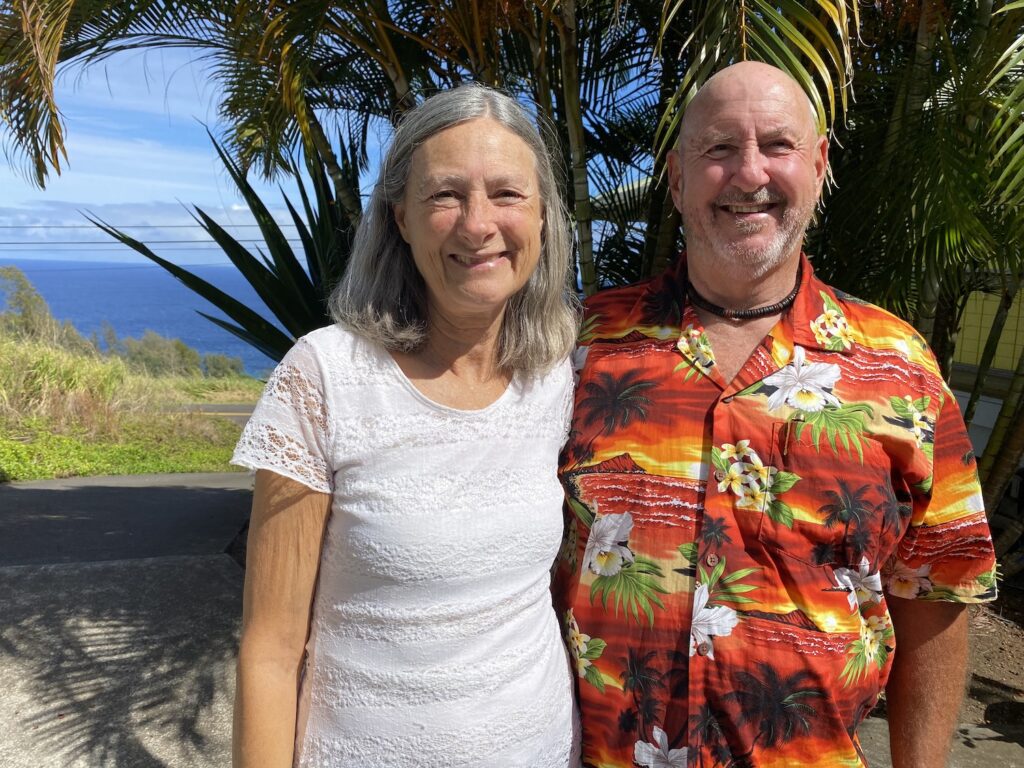GLOBAL OUTREACH
New Castle Bible Church has a vibrant emphasis on missions. This includes local, national, and international endeavors. The church is partnered with many global outreach partners and mission organizations and our people are encouraged to engage in outreach opportunities personally.
A number of our global outreach partners are 'home grown' providing us the joy of being the sending church for some. Each of our sent GO partners has an NCBC GO Care Team who come alongside to support them in numerous ways. By caring for these GO partners, we hope to live out 3 John 3-6,
You will do well to send them on their journey in a manner worthy of God. For they have gone out for the sake of the name, accepting nothing from the Gentiles. Therefore we ought to support people like these, that we may be fellow workers for the truth.

Philosophy
PURPOSE: The Glory of God
History will climax with God receiving worship from those whom He has redeemed from every tribe, language, people, and nation on the earth (Revelation 5:9-10; 7:9-10; 15:4; 21:24-26). Therefore, the ultimate purpose of our global outreach is the worship and glory of God. As John Piper wrote in Let the Nations Be Glad! The Supremacy of God in Missions, “Missions exists because worship doesn’t. Worship is ultimate, not missions -- because God is ultimate, not men. When this age is over and the countless millions of the redeemed fall on their faces before the throne of God, missions will be no more.” But until that day, NCBC strives to make disciples of all nations (Matthew 28:18-20).
To learn more, see Section A below.
PRIORITY: The Local Church
We believe the primary way the Holy Spirit works in the world today is through the local church. It is the present form of the Kingdom of God on earth (Colossians 1:9-19). God rules over His kingdom, and He mediates that rule in the church through His Son by His Spirit (John 14:17, 26; 15:26; 16:7-15; Acts 1:4-5). Jesus is the head of the church (Colossians 1:18), has promised to build the church (Matthew 16:18), and will return for the church. The church is central to God's reign on earth today. Therefore, the local church is necessary for advancing God's kingdom (1 Thessalonians 4:16-18; John 17:24).
Please note our priority upon the local church. Scriptures speak of the universal church made up of all believers between Pentecost and Christ’s return (1 Corinthians 10:32; Ephesians 1:22-23, 5:23-32; Colossians 1:18, 24; 1 Timothy 3:15). God intends for every believer to be under the authority of a local assembly of His church. Therefore, we believe our global outreach efforts will be most fruitful when they are driven by the local church.
In order to glorify God, all of our efforts to “reach farther” must prioritize the work of God’s Spirit in His local church. All of our outreach initiatives must be favored by God’s Spirit (John 15:4). He alone has the power to awaken sinful hearts to the gospel and empowers His church to be His witnesses to the ends of the earth (John 3:5-8, 6:63; 1 Corinthians 2:10-14; 2 Corinthians 3:18; Acts 1:8).
To learn more, see Section B below.
PARTNERS: The Role of Parachurch Organizations in Global Outreach
A parachurch organization, is “any spiritual ministry whose organization is not under the control or authority of a local congregation” (Jerry White, The Church and the Parachurch, 19). Parachurch ministries often help the local church accomplish her global outreach for the glory of God. Parachurch ministries are important and often necessary in assisting the local church. They are not, however, a substitute for the local church.
We commend the Gospel-driven desire to reach the nations for Christ which has fueled the rise and popularity of so many parachurch mission agencies and organizations. We also value parachurch organizations which help navigate the cultural, language, and economic barriers inherent to global outreach. However, we believe that for the last several decades, the local church has abdicated its God-given role thereby elevating the role of parachurch ministries. Local churches have supplied parachurch organizations with people, prayers, and financial provisions to better reach the nations for Christ. We need to be careful and avoid delegating our global outreach mandate to parachurch agencies who are willing to perform our biblical responsibilities for us.
Our study of the Scriptures causes us to perceive some inherent limitations to all parachurch organizations which leads us to reclaim God’s intended priority for the local church in all global outreach partnerships. We know that this is a significant undertaking and must be done in humility with all gentleness as we work together; both the local church and parachurch, for God’s glory.
To learn more, see section C below.
PLAN: Two Kinds of Sending from the Local Church
The first kind of Global Outreach sending is church planting, which seeks to plant and establish recognized and nationally led churches through strategic and bold Gospel ministry. Church planting efforts may include a broad spectrum of initiatives, including but not limited to: radio/media broadcasting, Bible translation, pioneer evangelism, strengthening cell groups, compassion ministries, etc. All sending of this kind occurs where there is presently no local church, and with the ultimate aim of planting a local church. Since the end goal in every church plant is to eventually become independent from the sending church, the church planter and sending church will work towards the day where they are no longer necessary and can move to another location in need of a local church. Therefore, church planters have a defined “exit-strategy” to help direct when the current work is finished and the move to a new church plant site is warranted. This is the kind of local church sending and reproduction that we observe in Acts 13-14; 16:9-18:21; and 29:1-42.
The second kind of Global Outreach sending is church partnerships, which seeks to strengthen and establish another local church by humbly serving the other church’s faith, prayer, evangelism, teaching, counseling, leadership training, financing, compassion, and/or education ministries. Church-partners may not have a defined “exit-strategy”. This is the kind of local church sending and partnerships that we observe in Acts 11:27-30; 15:36-42; 16:2-5; 18:22-23; 20:1-38; 21:4-16; Romans 15:25-28; 1 Corinthians 16:1-11; and 2 Corinthians 8-9.
A careful understanding of these definitions helps explain why we do not believe every Christian is called to be a global outreach partner. Just as every Christian is not called to be an elder (Ephesians 4:11), neither is every Christian called to be a church planter or a church partner.
To learn more, see Section D below.
PERSONALITY: The Sending of Global Partners
The sending church is responsible to pray for, identify, train, and send only those who are qualified to be global partners. A strong and right desire for outreach and a godly character that bears fruit in keeping with repentance will be evaluated by the elders to assess God’s call on the global partner candidate. We take seriously our God-given spiritual authority for our global partners and will work to strengthen our partnerships through servant leadership. Therefore, we consider our sent global partners to be an extension of our church staff and view them as non-local staff. Faithful service in a local church and a thorough knowledge of Scriptures is a necessary prerequisite (Hebrews 10:25, 1 Peter 3:13-17). In situations where the church planter is planting a church, he must be elder-qualified (1 Timothy 3:1-7). All other global partners must be deacon-qualified (1 Timothy 3:8-13), since all global partners are sent to serve as spiritual leaders on the field. Once the global partner is sent, the church is responsible to send in a manner worthy of God (3 John 6).
To learn more, see Section E below.
PROVISION: The Responsibility of the Local Church
We are committed to love the global partner well with our support of prayers, money, and other practical gifts to alleviate their needs (3 John 6, Colossians 4:12, Galatians 6:6). This not only shows our love and support for them and acknowledges their difficult work but also shows our love for God and His church. Close communication plays a very important role. Therefore, monthly updates by the global partner are necessary, not only to help with their needs and inform our prayers, but also be able to minister to them spiritually. In order to further facilitate this, each sent global partner is assigned a Global Outreach Care Team. Each GO Care team consists of NCBC members who help each sent global partner in their particular ministry. Each team will be committed to care for, pray for, visit, and fundraise for their assigned global partner--whatever is needed to further the glory of God through this particular ministry.
To learn more, see Section F below.
PHASES: The term of a global partner’s service
Since the vocation of serving God’s church is not a job, but a calling, we believe that it is good for global partners to commit themselves to a lifetime of service. However, short-term service (under 5 years) is at times helpful. While the most strategic use of church resources is to support career church planters and partners (mainly due to the difficulties of learning foreign languages and foreign cultures), short-term outreach partnerships may be useful for training, education, service, and encouragement for career global partners as well as the building up of the church.
To learn more, see Section G below.
CONCLUSION
We eagerly await the coming of the Lord when “every nation, from all tribes and peoples, and languages…[cry] out with a loud voice, ‘salvation belongs to our God who sits on the throne, and to the Lamb’” (Revelation 7:9,10). Until that day, let us not be “ashamed of the gospel for it is the power of God for salvation to everyone who believes!” (Romans 1:16)
PONDER: Recommended Resources on Global Outreach
-
Missions, Andy Johnson
-
For the Sake of His Name, David M. Doran
-
Let the Nations be Glad, John Piper
-
Senders, Paul Seger
-
Serving as Senders, Neal Pirolo
The Definitions Assumed by this Philosophy
-
Global Outreach - The overarching term for all our church planting and church partnership sending efforts (Avoids the negative connotations connected with the word “missions” in some non-Western contexts).
-
Global Outreach Partner - Sent and supported outreach workers who help us pursue the glory of God among all peoples.
-
Church Planting - The subset of “Global Outreach” ministry which refers to the Spirit-empowered reproductive ministry of local church planting (i.e. church planting, Bible translation, etc.).
-
Church Partnering - The subset of "Global Outreach" which refers to partnering with the church to do the work of God's Spirit through born-again believers (i.e. evangelism - see below, discipleship, compassion, outreach, etc.).
-
Evangelism - A ministry of the church which refers to the Spirit-empowered gospel proclamation ministry of the local church.
-
Parachurch Organization - A religious organization or agency which is not under the direct spiritual authority of the local church.
-
A Local Church - The household of God which consists of Bible-believing and gospel-teaching churches throughout the world. This is the earthly expression of God's kingdom in this present age.
-
The Sending Church - The local church who is spiritually accountable to God for sending the global worker according to 3 John 6-8.
-
The Receiving Church - The local church on the field who receives the sent worker and assumes spiritual authority for his/her work on the field according to Hebrews 13:17.
-
The Supporting Church - The local church who submits to the sending church in joyful and generous partnership for the sake of God's name among the nations, similar to the example of Romans 15:26-27.
More Information
"Section A" Purpose: The Glory of God
Since our chief purpose is to glorify and worship God, the worship of God by all peoples and nations is our mission. It is also the fuel that drives our mission because only God is worthy to receive glory and honor and praise due to all His wondrous works. He accomplishes works for His own sake; for His own glory and no other (Isaiah 48:9-11).
Having established that everything we do is for the glory and worship of the only One who is worthy because He is our Creator and Redeemer, then we must look to Scripture and prayer to accomplish that end. Through that, we can rightly understand that God is glorified when we lovingly preach the gospel to those on the wide path to eternal death. We must grow deeper into the Word so that we might better understand the height, breadth, and depth of the love of God for all nations and peoples. Through this knowledge, we will be spurred into making them disciples of Christ as we look to God in prayer and persevere in suffering, because God deserves to be forever praised and worshipped by people from every nation!
Psalm 67 teaches us that God blesses His people for the sake of His praise among all the nations: "May God be gracious to us and bless us and make His face to shine upon us, that your way be known on earth, your saving power among all nations" (67:1-2).
Therefore, we embrace our identity as stewards of God’s grace and channels of His mercy to all our neighbors. The goal of our outreach is never to build a name for ourselves, but rather to proclaim Jesus Christ as Lord (2 Corinthians 4:5).
"Section B" Priority: The Local Church
Predominantly in Scripture, the word “church” is used to refer to a group of believers in a specific city or area (Acts 5:11, 8:1, 13:1, 1 Corinthians 1:2, 4:17; 2 Corinthians 1:1; Galatians 1:2; 1 Thessalonians 1:1; Revelation 1-3). While the Scriptures certainly reference Christ’s church as a universal body (i.e. Matthew 16:18; Ephesians 5:23-25; Colossians 1:18; 1 Timothy 3:15), the one universal church on earth is always manifested in a particular locality - whether in individual homes (Romans 16:4; Colossians 4:15) or larger geographic areas (Acts 9:31; 1 Corinthians 16:19). Still, each individual assembly is the church of Jesus Christ in that place. Each church has its own God-appointed elders (Titus 1:5; Acts 20:28), and “there is no New Testament pattern for elders exercising authority over any other [churches] than their own local churches” (Grudem, Systematic Theology, 926-927). Yet while each local church has its own delegated spiritual authority, the Scriptures also describe occasions when local churches will intentionally partner together for the greater glory of God (Acts 11:27-30, 15:36-41, 16:1-5, 18:22-23, 20:1-38, 21:4-16; Romans 15:25-28; 1 Corinthians 16:1-11; 2 Corinthians 8-9).
The New Testament pattern clearly prioritizes the local church in the Spirit’s “kingdom advancing” work on this earth. And this is expected once we remember that the household of the living God is “the pillar and buttress of the truth” (1 Timothy 3:15). It is the local church that is devoted to the public reading and preaching of Scripture (1 Timothy 4:13; 2 Timothy 4:2). Only the local church that has a plurality of spiritually mature elders who possess the delegated authority and responsibility for guarding the truth (c.f. Titus 1:9ff). Only the local church has a defined regenerate membership with the God-given authority to “bind and loose” (Matthew 16:19, 18:17-20). Only the local church has the responsibility to recognize and judge the reality of one’s spiritual profession in baptism and membership (Acts 2:42; 1 Corinthians 5:11-13; 2 Thessalonians 3:14). It is the local church which has responsibility for encouraging the mutual perseverance and endurance of every believer to the end of their life (Hebrews 10:24-25).
Furthermore, Christ’s body of the local church is the sphere in which the Holy Spirit gives and empowers all spiritual ministry (1 Corinthians 12). Thus, it possesses the God-delegated authority to “lay hands” and publicly recognize and ordain those spiritual leaders whom God’s Spirit has given to His church (Acts 6:6, 13:2-3; 1 Timothy 4:14, 5:22; Titus 1:5). The local church has the responsibility to send global partners to all nations (Romans 10:14-15; Acts 13:3) and is the one who cares for them after they are sent (Phil 4:15-16; 3 John 1-8). Finally, it is the local church which is the storehouse and steward of the believer’s weekly tithes and offerings (1 Corinthians 16:1-2) and is responsible to regularly observe the Lord’s supper together (1 Corinthians 11:20-34).
Since the local church is the expression of God’s kingdom reign on the earth today. We see in Scripture that the primary way the Holy Spirit works in the world today is through the local church. Therefore, all our global outreach efforts seek to prioritize the local church whenever possible in both the sending and receiving aspects of global outreach.
"Section C" Partners: The Role of Parachurch Organizations & Agencies in Global Outreach
Many parachurch organizations and agencies have a good and right place in serving churches; however, there is a need for the local church to be careful to not misdirect biblical values through her partnerships. For example, parachurch agencies may often value professional accreditation, academic achievement, pragmatic efficiencies, ecumenical cooperation, and/or corporate processes. While these values are valid for the work the parachurch may accomplish, it shows a careful and needed distinction between the parachurch and the local church. The above values should not govern or serve an authoritative place in the local church.
NCBC prioritizes our partnership with local churches whenever possible since the local church is the expression of God’s Kingdom on earth today. He has promised to build His church. The Church of Jesus Christ is an everlasting organization, and the dearest creation and possession of God (Acts 20:28; Titus 2:14; 1 Peter 1:1-2; Revelation 1:5).
Parachurch organizations and agencies are wonderful organizations and are vital to our global partners. Their expertise in logistics, networking, and knowledge of bureaucracy and contacts in foreign countries are very helpful and necessary. However, since parachurch organizations and agencies are not the church itself, it’s important to understand the parachurch comes alongside the local church and supports her ministry rather than the other way around. In Greek, Para means to come “alongside.” In turn, the local church is thankful for the parachurch’s help and continues to make congregants aware of their presence so the church can pray for and work effectively with these organizations and agencies.
Finally, there is one more critical reason for the priority of the local church in all global outreach. Since the worship of God is the ultimate aim of all global outreach, healthy, reproducing, nationally led, local churches are normally the intended end. In its purest form, church planting is the reproductive ministry of a local church, empowered by the Spirit, to plant a local church where one presently does not exist. In other words, the ultimate aim of “reaching farther” is not merely to make individual disciples who follow Christ - but rather to collectively see these new disciples serving together according to the New Testament teachings in an established local church. And since it is impossible to reproduce what someone is not, we must not ask parachurch organizations to plant churches. God intends for local churches to plant other churches, and thereby avoid the unfortunate weaknesses that can be transferred from a well-intentioned parachurch who simply has a different identity, authority, and values than God’s church.
For these above reasons, the local church rather than the parachurch, will drive the vision and oversight of each global partner sent and supported by NCBC. We also encourage prospective global partners to consult with the elders of their sending church before pursuing a parachurch agency. As already stated, parachurch agencies have a legitimate and useful role in global outreach (e.g. administrative support, cross-cultural support, and training), but they should not replace the church. All parachurch partnerships should ultimately seek to accomplish the church’s vision (Acts 13:1-3, Rom 10:14-15). For such a partnership to be workable, the parachurch agency must acknowledge the sending church’s spiritual authority over the global partner, as well as agree in doctrine and philosophy of ministry.
Since the typical end of all church planting endeavors is the establishment of a local church, it is very necessary for us to have a proper biblical definition of what constitutes a church. If we don’t know what a local church is, then we may become tempted to build an organization outside the directives of the Word of God. And biblically, every local church possesses a body of shepherds and teachers to equip the saints for the work of the ministry, for building up the body of Christ…not being tossed to and fro, but rather building itself up in love (Eph 4:11-16). The local church is a group of believers who are led by a God-given plurality of men who are tasked with refuting false doctrine, proclaiming the Word, shepherding the flock, and possessing authority over ordinances and with sending called members from the congregation out to all nations (1Peter 5:1-4, Acts 2:41-42, 1 Corinthians 12:13).
Therefore, it is important to note that neither informal nor formal gatherings of believers automatically constitute a local church. It is our theological conviction that the local church, and not the parachurch, is the primary way God’s Spirit works in this present age. And a proper definition of the local church has significant implications upon practical authority structures and the local church’s responsibilities in global outreach (Acts 14:19-23).
"Section D" Plan: Two Distinctive Kinds of Sending from the Local Church
When multiple churches and organizations work together, clear distinctions of authority must be established for God to be most glorified. We already established that the parachurch missions agency must be submissive to the church in order for God's plan for the local church to be best realized. Therefore, the sending church or the receiving church (if present) will be responsible for the spiritual oversight of the global worker. Furthermore, there are many opportunities for other local churches to partner with a sending church to aid in the support of the global partner. These supporting churches must refrain from exercising any spiritual authority over the global partner but rather encourage, care for, and pray for both the sending church and global partner.
With church planters, because there are no churches receiving them on the field, the sending church is responsible for spiritual oversight and vision for their ministry. For church partners who are sent to serve with a local church on the field, the sending church will delegate their spiritual authority for the global partner to the receiving church. Failure to do so will unnecessarily weaken the receiving church and unintentionally damage the very thing we aim to strengthen. Empowering the receiving church to accomplish the vision of the Holy Spirit given to their elders, rather than undermining it with the sending church's vision, is our goal.
This careful distinction in authority can be most clearly seen in the following table:

To establish if the global partner is a church planter or church partner, we must evaluate if there is a biblically functioning local church at the ministry site. If there is a receiving church at the ministry site, then the global partner is classified as a church partner that can work to strengthen, encourage, and build it up. NOTE: The distinction between a “church planter” and a “church partner” may not always be obvious by their activity or giftings. Pilots, teachers, pastors, mechanics, and compassion workers would legitimately qualify as either a sent “planter” or “partner.” The difference in their sending category is solely determined by whether there is a biblically functioning church at the ministry site. If there is not yet a local church established on-site, then the global partners (as well as any of their support workers) are classified as church planters--since their ultimate aim is to establish a local church. So, there can be many similarities in these two kinds of sent global partners, but right understanding of where the authority lies is paramount in faithful church planting and partnerships.
Please also note that there are two kinds of relationships the sending church may have with its global outreach partners: sent or supported. Each GO partner can only have one sending church. This is the local church that has spiritual responsibility for publicly affirming them and shepherding them through the sending process.

Supporting churches are a local church that is partnering their finances and prayers with the sending church. Each GO partner may have multiple. Supporting churches have no more spiritual authority for their supported partners than any other individual supporter. The spiritual authority for every GO partner is either in their sending church, or their receiving church, depending on whether or not they are a church planter or a church partner.
The following chart seeks to summarize all of these notes:
So then, please carefully consider the implications of these careful distinctions on the local church’s sending of her global workers for the glory of God.
By definition, all sent church planters will have a defined “exit strategy.” Although it may be multiple decades into the future, these workers aim to “work themselves out of their jobs” by eventually transferring their work to self-supported, locally led elders. Once God’s Spirit establishes a recognizable plurality of biblical elders serving in leadership over the new church on the field, the church-planting work is completed. Any ongoing relationship between the sending church and receiving field church would now transfer to a “church partnership” relationship. The receiving field church would possess God’s delegated authority for the entire ministry of their body - including any ministry that is delegated to others to be done on their behalf.
In contrast to church planters, global partners sent to partner with an existing church, may or may not have a defined exit strategy. They may be sent to help a local church continue the work God calls it to do until Christ returns.
The above chart goes further to define the sending responsibilities of the worker’s home church throughout both kinds of sending. For church planting, the sending church is fully responsible for all the sending responsibilities of the worker - including to affirm, equip, care, finance, oversee, and communicate on the behalf of the sent worker to all supporters. For church partners, the sending church is primarily responsible to listen and respond to the spiritual leaders of the receiving church, and then effectively transfer all their authority and shepherding responsibilities for the church partner to the receiving church. All continued responsibilities of the sending church towards its church partners should be at the request of, and under the final authority of, the receiving local church.
One further note related to the above table. Note that the involvement of the parachurch missions agency has some distinctions between these two kinds of sending as well. The role of the parachurch agency for church planting is much more involved, as often they may have an onsite field presence that the sending local church does not have. Therefore, their primary role can be summarized as one of communication - meaning they exist to serve the sending church by helping them continue to equip, care for, finance, oversee, and testify of their church planter’s work across cultural and distance barriers.
For church partners who are received by a local church on the field, the parachurch’s role is one of collaboration - aiding both the sending and receiving churches in communicating their needs to one another, and in assimilating the church partners into the receiving church’s care.
Another important distinction to make is that all church planting is evangelism, but not all evangelism is church planting. Again, both are good and God-glorifying works which are fueled by God’s Spirit. Evangelism is the Spirit-empowered ministry of proclaiming God’s gospel. It is the broader word compared to church planting. Evangelism is the preaching of the good news. It is not geographically bound but rather occurs across a back-yard fence or around the world. Also, it is successful whenever the Gospel is faithfully proclaimed - regardless of how the hearer chooses to respond in the moment. Evangelism is the biblical responsibility of all Christ-followers. Seeking to reproduce a local church where there is not yet a local church is a very specific and narrow kind of evangelism. Global outreach is certainly one kind of evangelism, but it is not preferable to, or better than, all other forms of faithful Gospel proclamation.
Again, to use an illustration:
These distinctions are very important to keep in mind. If global outreach gets functionally equated with evangelism, then the important work of the local church’s reproduction will get lost. In Romans 15:20, Paul spoke of preaching the gospel where Christ has not been named already. Church Planting is the taking of the gospel beyond the direct influence of the sending church in order to evangelize the unbelievers who have little or no opportunity to hear the gospel -- by establishing local churches where there are none. How can unbelievers believe in Christ if they have never heard? As Romans 10 says, “How beautiful are the feet of those who bring the good news”.
"Section E" Personality: The Sending of the Global Partner
In order to send our global partner(s) in a way worthy of their calling, it is our desire to train and equip those we are sending (2 Thessalonians 1:11-12, 1 Timothy 5:22; 2 Timothy 3:14-17). Scripture is clear that there is no such thing as a self-appointed global partner in this church age (Romans 10:15). The sending process must include a time of development that trains our sent global partners to be qualified and authorized by our elders for the greater glory of God among the nations. This process can and may be specific to each individual, according to the needs that the elders determine. It is the elders’ desire that through this process, the calling on each person to global outreach can be determined to be a calling from God and no other, and that the intentions of the individual are to bring greater glory to God alone.
During this process there will be prayerful discernment by our elders that their calling to global outreach is real. NCBC will commission those we are sending out and will partner with them to raise the necessary prayer and monetary support required. We will also prayerfully determine together with the global partner where that partner will serve as well as which parachurch mission agency and receiving church they will partner with.
NCBC views our sent global partners as an extension of our local church staff and therefore should care for them just as our own local ministry staff. We seek to honor 1 Timothy 5:17-18 regardless of whether our workers are serving globally or locally. When the church hires a staff member, he is interviewed, trained, evaluated, paid a salary, and given benefits. This should be the same process for the global worker. Having the global partner raise their own salary and benefits as well as having a mission agency to hire, evaluate, and train, puts undue burdens on the global partner. In the same way we pay our soldiers to fight for us, why wouldn’t we do the same for our global partner who fights on our behalf in far places for God’s kingdom (1 Corinthians 9:7-14)? This is also true of those who have fulfilled their calling to go and can no longer serve in this manner. Since we will stop support of all global partners who retire, it is still NCBC’s responsibility to care for our sent global partners who are no longer able to serve globally when that time comes. Therefore, during their ministry, they are to receive the support needed to provide for the same retirement benefits as the local church’s full-time staff. In cases where the global worker and their family cannot provide for their retirement, we may provide for them through benevolence funding (1 Timothy 5:3-4).
Since NCBC is responsible for the sending of our global partners, our goal is to take on the responsibility of sending them fully-funded through our church. When appropriate, we may also receive financial and prayer support from other like-minded churches and individuals who desire to partner with us in sending each global partner.
When sent global partners are home on furloughs, we desire to come alongside and help revitalize them spiritually and physically, fully ready to joyfully serve on the field when they return. We wish to do this by inviting them to serve as part of the NCBC staff where they will be encouraged through Bible study, prayer, and serving alongside like-minded people. In turn, it is also desired they mutually encourage the church family by sharing their spiritual gifts and bringing a higher understanding of God's great commission call to the church for global outreach (Matthew 28:19-20).
In recent years, global partners have raised their own financial support from individuals and various other local churches. While it is important for local churches to work together, this way of raising financial support can distract and prevent the global partner from the necessary training, rest, and the involvement of building up of the church; especially if the support is spread out over many churches, individuals, and geographic areas. We believe that the sending church should give freely to this endeavor rather than for the burden to be placed on the global worker. To work towards this end, it is our desire to start with a significant percentage (with the ultimate goal eventually being 100%) of our sent global partners’ support be raised directly through New Castle in order to allow the global partner to spend significant time with us before they leave for the field and while on furlough.
We believe that sending churches should receive those gifts directly and then send them on to the mission agency rather than for individuals and supporting churches to bypass the sending church. We recommend channeling all financial support through the sending church whenever possible for the following reasons:
-
We understand that money reflects authority. Since the parachurch missions agency is often the organization dispensing the funds to the worker on the field (due to cultural and economic specialties), we believe it is helpful for the agency to understand what percentage of the worker’s support is directly connected to their sending church.
-
Since the sending church has the biblical responsibility to make sure their sent workers are fully funded, channeling the workers financial support through the local church increases the elders’ awareness of their current funding levels and needs, etc.
-
Passing all funds through the sending church serves to develop a relationship between the sending church and the supporting churches or individuals who donate. The more this partnership can be understood, realized, and celebrated the more God is glorified.
We do not want to discourage partnering with other churches in supporting global partners, but rather emphasize the God-given directives of the sending church which leads to greater unity.
"Section F" Provision: The Responsibility of the Local Church
Mutual encouragement between a local church and global partner in global outreach is frequently mentioned and modeled to us (Romans 1:11-13). The church must take the responsibility to care for and encourage their global partners who are often pressed and weary due to the many trials of cross-cultural ministry, all the while wrestling against "spiritual forces in high places" (Ephesians 6). Mutual encouragement doesn't stop with the church, the global partner must encourage the local church as well. Who better to report back to a praying congregation all the wondrous works of God? Who else can share the needs of the lost, broken, and poor, than the one who sees with their own eyes? If the global partner is an extension of New Castle--a non-local staff member--then the body must be united, all the while building each other up (Ephesians 4).
To aid in this, Global Outreach (GO) Care Teams are formed for each sent global partner. These teams work to establish a close relationship with the respective global partner they support. Great communication will be an integral part of this function. A global partner who trusts their GO Care Team is more apt to share specific prayer requests to be lifted to the Lord. This trust is built through transparency, love and confidentiality. The GO Care Team desires to take prayer requests and praises of their global partner and share them with the whole congregation when appropriate.
Just as missionaries in 3 John were accountable to the church, our sent global partners will be accountable to NCBC. Likewise, NCBC will assume responsibility for their care spiritually, physically and financially. We will strive to support our global partners abundantly well so that they “lack nothing” in the Lord’s work (Titus 3:13). The work of properly supporting a sent global partner is a continual, multifaceted process. Before leaving for the field, global partners need to be properly equipped for the work ahead. We work to strengthen their understanding of the authority of God’s Word and its sufficiency. Furthermore, increasing the global partner’s gospel knowledge will be key to their development. Also, the importance of submitting to the spiritual authority of their elders (Titus 2:15, 1 Thessalonians. 5:12; 1 Timothy 5:17; Hebrews 13:17), along with a biblically sound approach to evangelism, will be emphasized. Once a clear understanding of these critical foundations of outreach work is attained, more practical applications of outreach work may take focus and receive training, according to the needs of each respective global partner.
"Section G" Phases: The Term of a Global Partner's Service
Short-term service is most effective when requested by a global partner on the field and executed under the spiritual oversight of the receiving local church on the field. Ideally, the receiving church will suggest an optimal time for a trip, what exactly will be done while there, and what individual abilities would be most beneficial to the service needed. This is a great way where the partnership between sending church and global partner and their receiving church can be strengthened in service together.
A person who commits to short term service commits themselves to regular prayer and focused time in the Word ahead of their service so that their ability to serve well is strengthened. To do this well, the people that we send out and commission should be well vetted for service. The elders will evaluate all potential participants’ spiritual state, motives, desires, abilities, and gifts. This ensures that a person committing to this service is in alignment with biblical principles and NCBC’s philosophy. Once commissioned, NCBC treats them as an extension of ourselves and fully funds, encourages, and trains them appropriately.
Furthermore, in the case of Global Outreach (GO) Care Teams, serving our global partners by traveling to the ministry site provides an opportunity for the church to help their ministry and provide them in-depth spiritual guidance and encouragement. Ultimately, short-term service takes a lot of time to plan, and money to go. Wisely using the resources that God has entrusted us with is necessary for proper biblical stewardship.
Global Outreach Partners
- All
- Sent
- Supported














